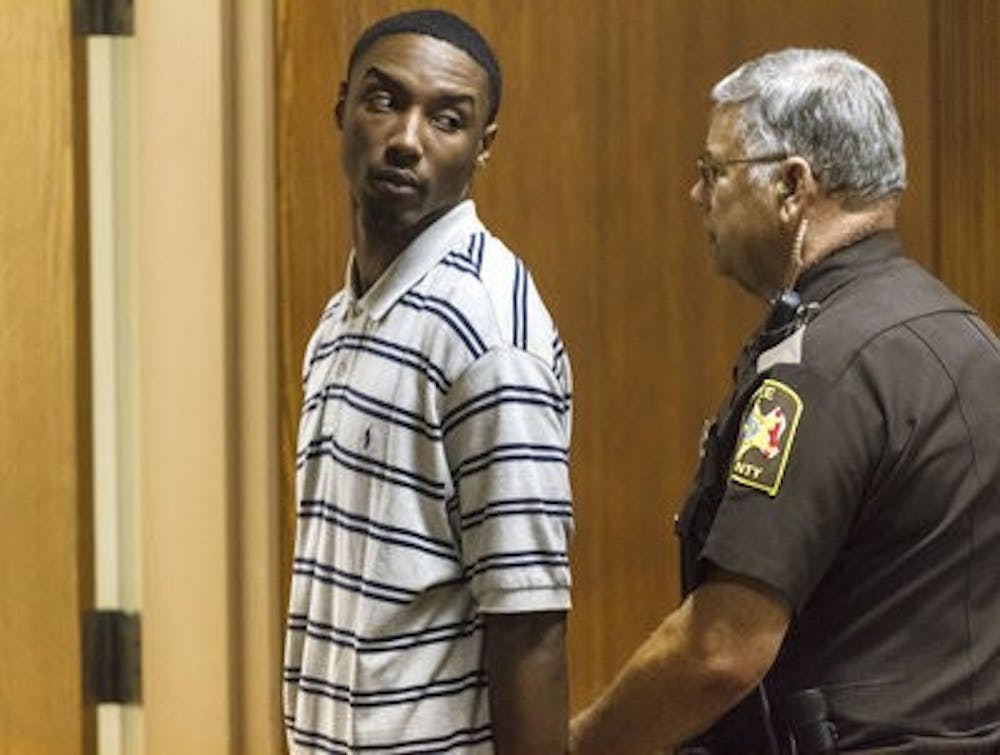The Auburn community has been helplessly dragged in and out of the courtroom this week, fueled by the fires of investigative reporting and the final say of the justice system.
Monday, June 18, seems quiet in comparison to the days that followed, with Auburn still recovering after the shooting that occurred at University Heights only nine days earlier and with a myriad of legal proceedings in tempered anticipation, including those of Harvey Updyke and Antonio Goodwin.
Updyke appeared at the Lee County Justice Center that day for a deposition related to his upcoming trial.
Cindy Foster, chemical expert at the Mississippi State Chemical Laboratory Pesticide Residue Division, was brought in by the prosecution to issue a video deposition that is said to be vital to the prosecution's case.
The defense brought a chemist, Lawrence Keith, to evaluate the deposition.
Updyke's wife, Elva, partook in a yelling match with a deputy before the deposition, prodding the media that she was adamantly against.
Still, nothing unexpected happened.
Within 24 hours, that all changed.
Former Auburn University football player Antonio Goodwin was sentenced to 15 years in prison on Tuesday, for a robbery committed in March 2011 during which he used fellow teammate Michael Dyer's handgun.
Despite testaments of his goodwill by friends and family members, the court found Goodwin guilty of first-degree robbery.
On the same day, the soon-to-be-legendary third Updyke confession was reported by The Plainsman's community editor, Andrew Yawn, and ignited a media frenzy not only in Alabama, but on sports networks across the country.
Amidst the hearsay that followed, on Wednesday, Updyke's attorney, Everett Wess, denied that his client ever made a confession to Yawn.
Editor-in-chief of The Plainsman, Robert Lee, released a statement later that day exhibiting full support for Yawn from himself and the entire Plainsman staff.
"We stand behind Andrew Yawn's reporting on the Updyke confession yesterday afternoon 100 percent. The information gathered was not prompted, nor off the record," Lee said.
A gag order was issued to Yawn later that same day, which henceforth has prevented him from talking about or reporting on the case any more.
On Thursday, the Updyke sensation was in full swing by the time the courts tried unsuccessfully to pick 10 more jurors who did not have previous knowledge of the case or were compelled to bias.
Judge Jacob Walker expressed his frustration when Wess's assertion that the jury pool in Auburn had been "poisoned" by Yawn's article seemed correct.
"These jurors are doing the best they can, and people are intentionally interjecting them," Walker said.
Many jurors commented that the news seemed inescapable, especially in Lee County, and that even in trying their best to avoid it, the trial had become a part of Auburn's life.
Wess continued to renew his motion for a change of venue, while the state continued to insist upon prosecution in Lee County.
By that time, Wess's repeated call for a change of venue had become something of a running gag.
District Attorney Robbie Treese said that the case had received too much media attention to be moved anywhere in Alabama and, possibly, other neighboring states.
"We object to moving it to Rhode Island," Treese said jokingly.
In what turned into a largely anti-climactic moment, Judge Walker issued a continuance, delaying the trial inevitably.
Lovers of Auburn, both the city and the University, were left hanging in a purgatory of disbelief at what should have been a swift sentence of closure.
Friday through Sunday, Auburn tried to figure out how to make sense of it all.
Until another court date is announced, Auburn will have to keep trying.
The gag order remains in effect for important witnesses in the trial, keeping those individuals who could potentially share information, such as radio personality Paul Finebaum and reporter Andrew Yawn, silent.
It would seem that until all the yellow tape is cleared, Auburn can only expect more delays in this pursuit of justice.
Get ready to yawn, again.
Do you like this story? The Plainsman doesn't accept money from tuition or student fees, and we don't charge a subscription fee. But you can donate to support The Plainsman.





